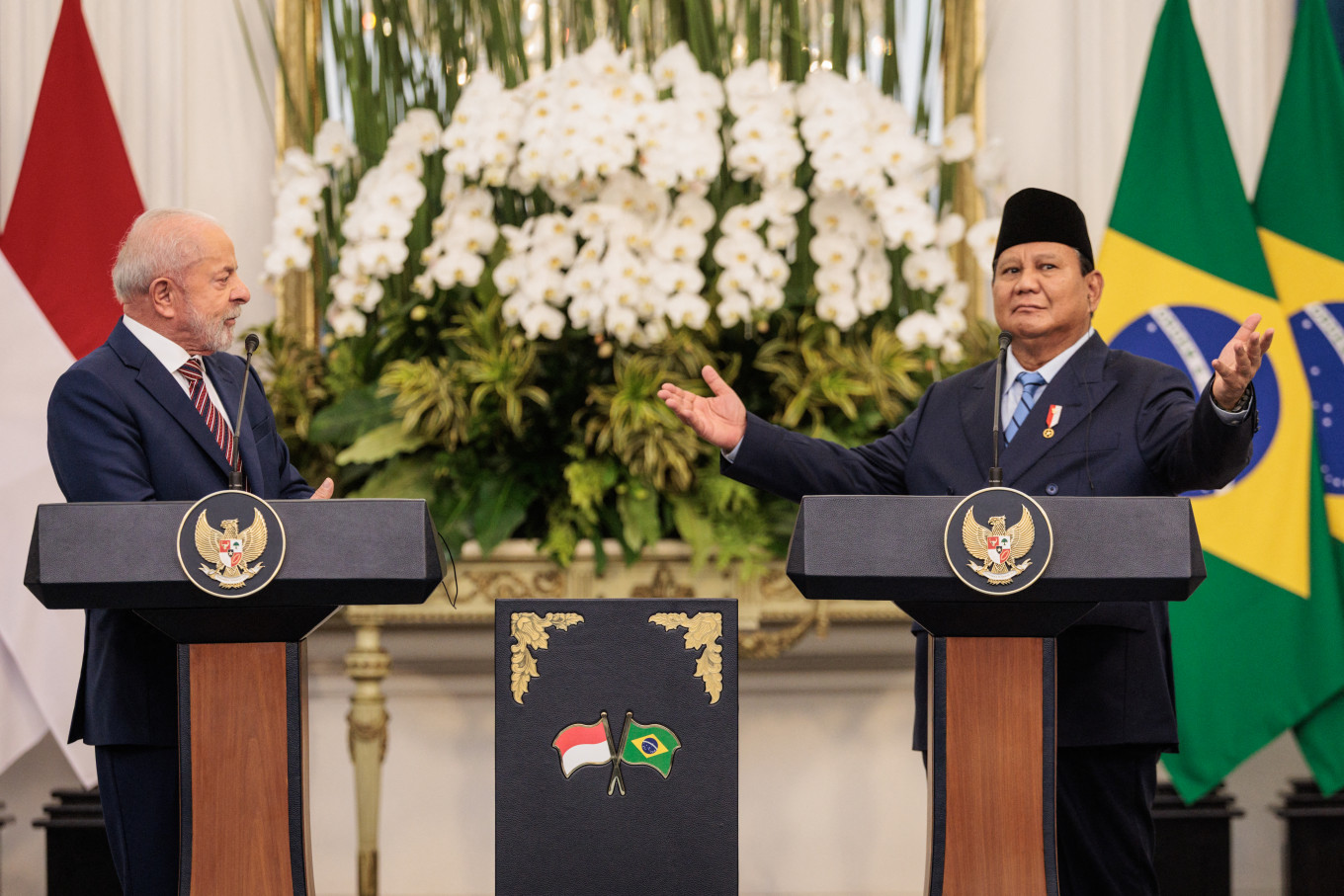Popular Reads
Top Results
Can't find what you're looking for?
View all search resultsPopular Reads
Top Results
Can't find what you're looking for?
View all search resultsObrigado, Senhor Lula
Our children will discover new cultures and new ways of thinking by taking the trouble to learn new languages.
Change text size
Gift Premium Articles
to Anyone
L
earning a new foreign language should not be all that difficult for Indonesians who are already among the world’s most natural polyglots. A SwiftKey study says Indonesia is the largest trilingual nation in the world, with 17.4 percent of its 280 million population speaking three languages, typically their regional language, the national language Indonesian and English, in that order.
Many Indonesians speak a fourth or fifth language because of their professional or personal interests. These may include Arabic, Mandarin, Japanese, Korean, French or German. Law students must learn Dutch, the language of our former colonial masters.
Why not add Portuguese, as suggested by President Prabowo Subianto during his recent meeting with his Brazilian counterpart Luiz Inácio Lula da Silva in Jakarta? Prabowo said he would make Portuguese a priority foreign language to be taught in Indonesian schools to strengthen the strategic partnership between the two countries.
The two countries are already working together through multilateral organizations, including BRICS and the Group of 20 (G20), to push back against the forces moving toward a bipolar world. As two middle-power countries with large populations, we have the impetus not only to ensure the multipolarity of the world, but also to collaborate on many development issues such as climate change and food and energy security.
Portuguese ranks the ninth-most spoken language in the world with over 270 million people. Brazil counts the largest with 78 percent, Portugal accounts for 3.9 percent and the rest are in former Portuguese colonies in Africa, and our own next door neighbor Timor-Leste.
Those interested in taking up the language will be pleased to know a few dozen Indonesian words have their origins in Portuguese, such as meja (table), sepatu (shoes), mentega (butter), a reminder that Portugal once spread its influence in our part of the world.
So why not indeed? Although it was not mentioned in the final joint statement by the two presidents, now that Prabowo has already stated it, our education authorities are looking into the possibility of introducing the Portuguese language into our schools, presumably as an elective subject, just like all other foreign languages.
We are still in the process of reintroducing English as a mandatory subject in elementary schools in 2027, having demoted it to an elective subject in the 2013/14 national curriculum.
Whether or not there will be sufficient interest in learning Portuguese is something that the Brazilian embassy in Jakarta could help with, starting with setting up cultural centers, which include Portuguese classes, in Jakarta and other big cities. Indonesian universities could collaborate with their Brazilian counterparts to set up Brazilian studies, including Portuguese literature.
One possible incentive to learn Portuguese is for our two governments to offer scholarships for Indonesians to study in Brazilian universities, and vice versa. Indonesian baby boomers may recall German was a mandatory subject in high schools that helped prepare some of them to pursue college studies in Germany, where tuition is free. One such student later became our president.
As long as we are on the subject of learning languages, the education authorities should consider other languages that we could offer children. Besides English, many schools already offer German, French, Mandarin and Japanese as elective subjects.
Introducing Southeast Asian languages, like Thai, Vietnamese, Burmese and Tagalog would certainly help push the vision of the ASEAN Community by 2045.
If geopolitics is the reason for introducing Portuguese, we should also consider Hindi since India is also a strategic partner in keeping the world multipolar. Spanish may not fall into Prabowo’s category of strategic interests, but it is a language more widely spoken than Portuguese, not only in Spain and Latin America, but also in much of the United States today.
In the era of artificial intelligence, it is easy to dismiss the need to learn foreign languages. AI may be used as a powerful tool to learn, but our children will discover new cultures and new ways of thinking, not to mention plenty of wisdom and expand their horizons by taking the trouble of learning new languages.
Mastering many of the world’s languages will make Indonesians truly global citizens.











